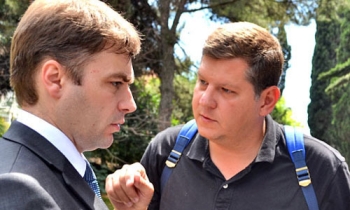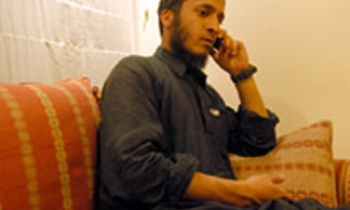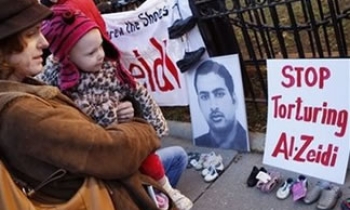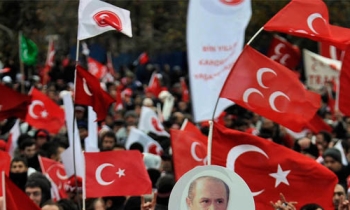A new wave of violence hit the media in Honduras last week, even as the country appeared to be farther than ever from resolving the crisis resulting from President Manuel Zelaya’s removal in a coup on June 28.
“The de facto government has again illustrated its concept of press freedom by pitting soldiers and police against news media that are critical of the coup,” Reporters Sans Frontières (RSF) said. “The attacks on community and education media are yet another sign of the deterioration in the general press freedom situation since June 28.”
It said, “The government is reaping what it sowed when it launched a war on the media at the time of the coup. We urge the activists of the National Front for Resistance to the Coup not to use physical violence against media that back the de facto government or the employees of these media.”
Lidieth Diaz of Radio Globo — one of the few remaining news media still critical of the new regime — said she was denied access to the presidential palace on August 13 on the personal instructions of President Micheletti when she want to cover a ceremony in which Micheletti was participating. She was allowed in several hours later after the office of the human rights ombudsman intervened.
Radio Progreso, a Jesuit-run educational radio station, said reporter Gustavo Cardoza was attacked by police while covering the eviction of Zelaya supporters from their housing in Choloma, in the northeastern department of Cortés, on August 14. Cardoza said he was attacked and beaten while a policeman pointed a gun at him.
Witnesses confirmed that six officials hit him several times in the head as he lay motionless on the ground. He was taken to a police station and held for several hours until lawyers from the National Front for Resistance to the Coup interceded.
During the same operation, police manhandled photographer Julio Umaña of the daily Tiempo and confiscated his camera although he had just shown his press accreditation. Tiempo said other members of its staff have been attacked while covering recent demonstrations in support of the ousted president.
Soldiers backed by police arrested Alfredo López, the head of Radio Coco Dulce, a community radio station, during a demonstration by the National Front for Resistance to the Coup on August 12 in Tegucigalpa and released later that night, the World Association of Community Radio Broadcasters (AMARC) said.
Journalists working for pro-Micheletti media have also been the targets of violence. On August 15, five Molotov cocktails were thrown at the Tegucigalpa headquarters of the daily El Heraldo, which supports the new government. Only three of the devices exploded. Several of its reporters and photographers have been threatened or physically attacked by Zelaya supporters, who accuse it of participating in a conspiracy to oust the president.
Members of the National Front for Resistance to the Coup demonstrated outside the Tegucigalpa headquarters of La Tribuna on August 15, verbally attacking its editor and staff. Two days prior to that, four hooded men set fire to one of the newspaper’s distribution trucks.









